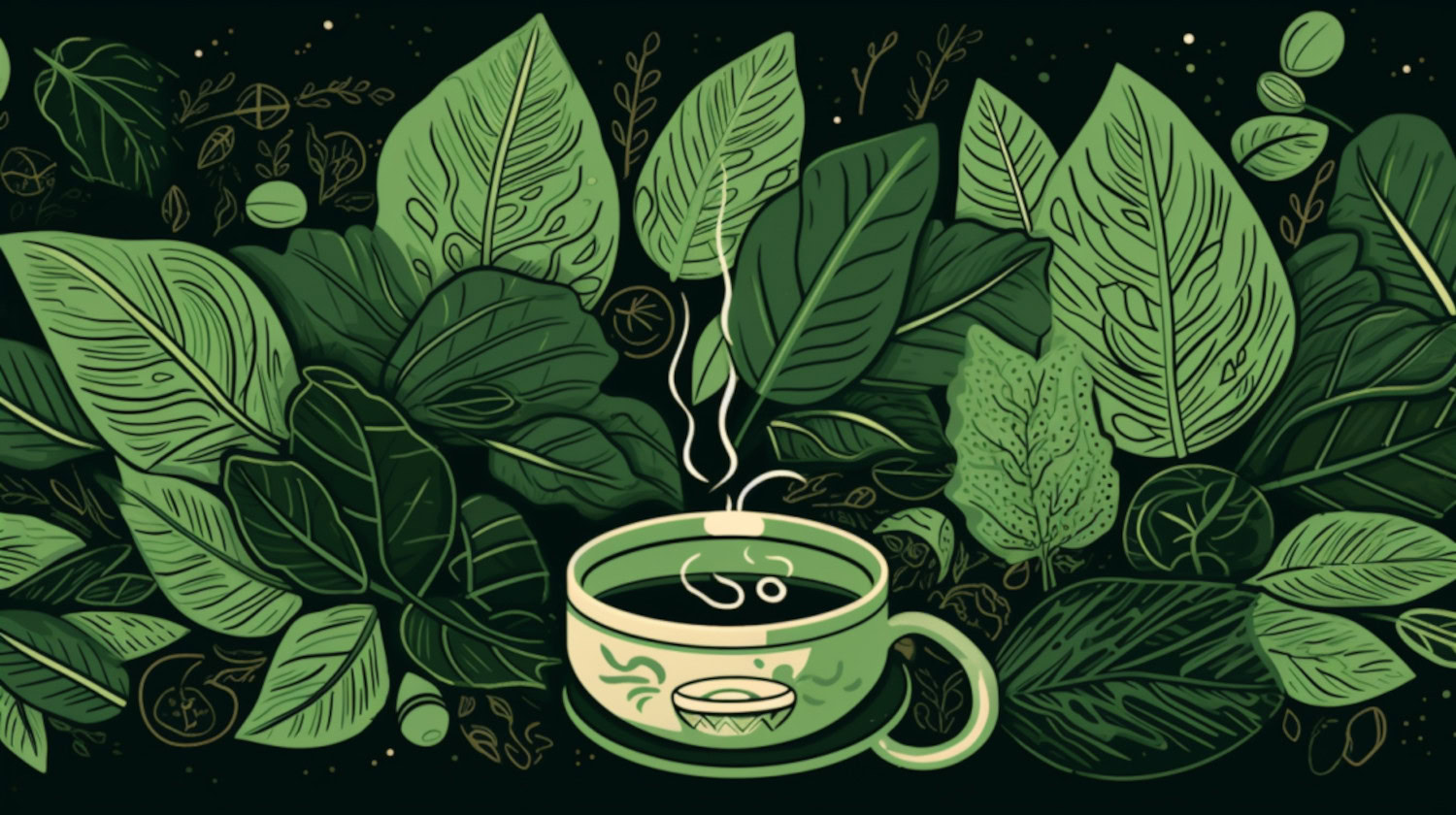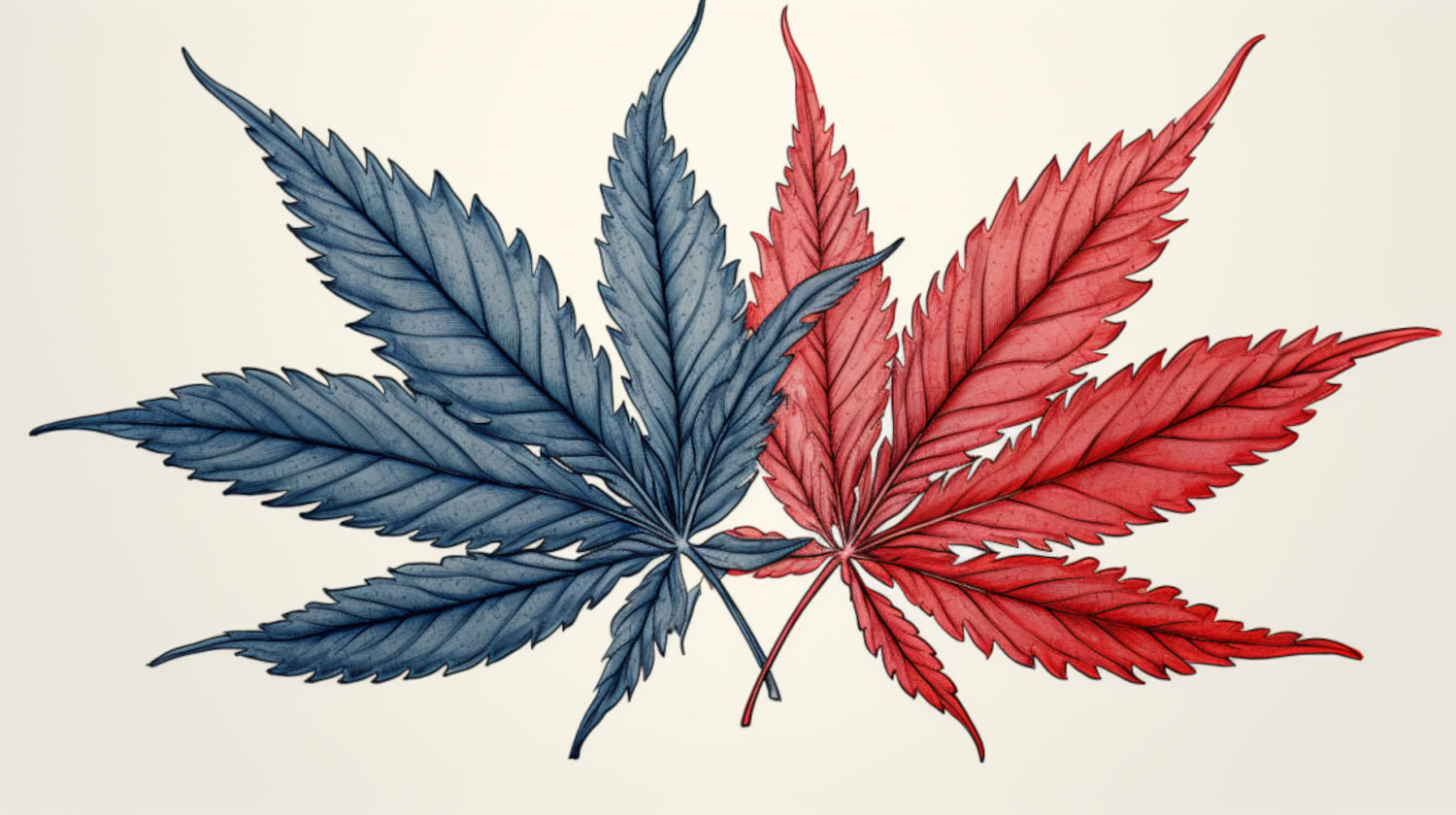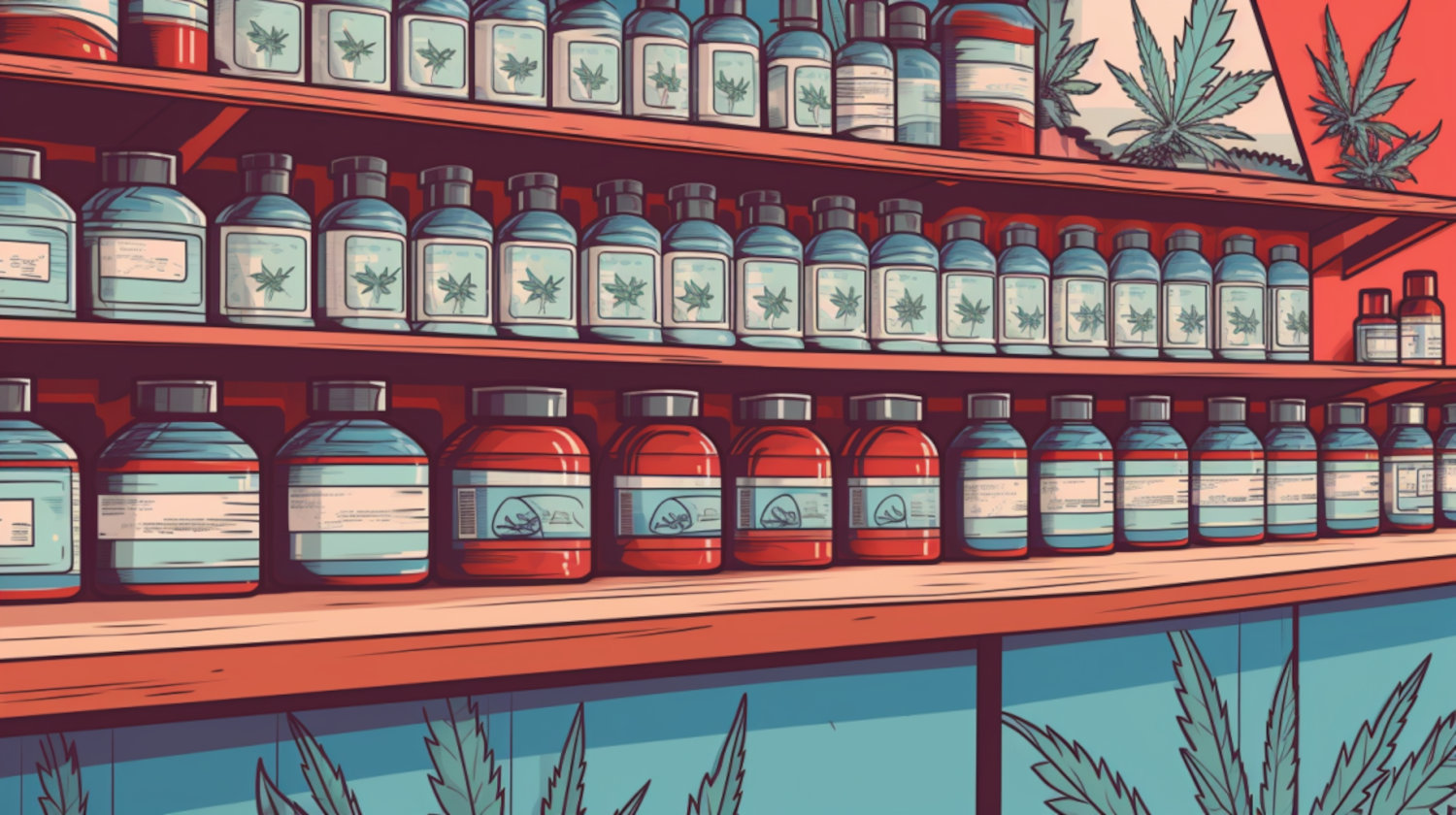Key Takeaways
- Kratom comes from a South-Asian tree and provides provides relief from anxiety and pain as well as a boost to mood, focus, and energy by targeting opioid receptors and may be addictive.
- CBD comes from hemp and is provides relief from pain and anxiety as well as help sleeping. It acts on the body’s endocannabinod system and is not addictive.
- Both are legal in the US and widely available. CBD is generally safer and comes in a wider range of products.
Nature's medicine cabinet is bursting with potential, offering countless alternatives for those exploring a holistic path to health. Amidst this abundance, two botanicals have recently taken center stage: CBD, the powerful non-intoxicating molecule of the cannabis world, and kratom, a more complex yet intriguing player. Interest in both of these powerful natural remedies as sparked the debate of kratom vs CBD.
With interest in both CBD and kratom expanding, it's important to be able to tell these two apart, especially for those who are looking for relief from a particular health concern.
What is Kratom?

Kratom (Mitragyna speciosa) is a tropical evergreen tree indigenous to Southeast Asia.
For centuries, it has been used in traditional medicine and cultural practices in countries like Thailand, Malaysia, and Indonesia, especially among laborers, to reduce fatigue and increase energy during long work hours. It was also used for its pain-relieving and mood-boosting properties. Primarily because of this, kratom has gained popularity in Western countries as an alternative treatment for pain, anxiety, and opioid withdrawal.
The leaves of the kratom tree contain compounds called alkaloids, primarily mitragynine and 7-hydroxy mitragynine, which interact with the body's opioid receptors, producing a range of effects. Nevertheless, kratom's effects are complex and dose-dependent, varying from person to person:
- Low to moderate doses (1-5g): Stimulant-like effects, increased energy, alertness, and sociability.
- Moderate to high doses (5-15g): Sedative-like effects, pain relief, relaxation, euphoria.
These effects are primarily due to kratom's interaction with the opioid system, but it also affects other neurotransmitters like serotonin and norepinephrine.
Scientifically, kratom's primary active alkaloid, mitragynine, acts as a partial agonist at the mu-opioid receptor. This means it binds to the same receptor as opioid medications like morphine but produces a less potent effect.
Mitragynine also interacts with other receptors, potentially contributing to its stimulating effects. Other alkaloids in kratom, such as paynantheine and speciogynine, have been shown to activate serotonin receptors, which may contribute to its potential mood-enhancing properties.1
What is CBD?

Cannabidiol, better known as CBD, is a natural compound found in the Cannabis sativa species. One of the most significant benefits of this molecule is that it may provide many similar benefits of THC minus the mind-altering effects. It’s non-intoxicating and won't result in a "high."
CBD comes from hemp, a particular variety of the Cannabis sativa species with naturally low levels of THC (typically less than 0.3%). Once extracted, CBD can be transformed into a variety of products, making it easier than ever to reap its potential benefits.
CBD interacts with the endocannabinoid system (ECS) and is a vast network of receptors and messengers that regulate various bodily functions.2 CBD's ability to interact with the ECS may be the reason behind its potential therapeutic effects.
Thanks to continued scientific research, new legislation, and shifting attitudes toward cannabis, CBD is being noticed for its full potential, including its use for pain, sleep, anxiety, and stress relief.3
Comparing Kratom and CBD Effects
Kratom and CBD are not interchangeable. They each have their own unique ways of interacting with your body, leading to very different experiences. Individuals who are curious about trying kratom or CBD need to understand a few key differences.
Kratom’s effects depend on the dosage. At lower doses, it's reported to be a mild experience, boosting energy, sharpening focus, and increasing sociability. It is said to be more soothing at higher dosages, easing pain and lulling users into a relaxed state.
This dual nature is due to kratom's main players, mitragynine and 7-hydroxy mitragynine, which work by interacting with the brain's opioid receptors. This interaction triggers a cascade of effects, from easing pain to inducing a sense of euphoria.
CBD may likely be milder on the nervous system. It doesn’t cause intoxicating effects. Instead, its effects are often described as soothing, easing stress, tension, and pain. It's a subtle shift in a person’s overall physical and mental state, promoting relaxation and well-being without the mental fog.
Unlike THC, which directly interacts with the CB1 receptors, CBD indirectly influences these receptors, helping the ECS to find its own natural balance.4
| Substance | Potential Benefits | Potential Risks |
| Kratom | Pain relief, mood enhancement, energy boost, focus | Addiction, dependence, withdrawal, liver damage, death |
| CBD | Pain relief, anxiety reduction, sleep improvement | Fatigue, diarrhea, changes in appetite, drug interactions |
Kratom and CBD: Legality and Availability

Kratom and CBD are both rising in popularity in the world of natural remedies. While they share the ability to enhance well-being, they are two entirely different substances, each with its own unique effects and legal considerations.
Kratom is illegal in some countries, including Australia, Denmark, Finland, Norway, Poland, Romania, Sweden, and Thailand. In the United States, kratom is not regulated by the Food and Drug Administration (FDA) but is legal to possess and use in most states. Kratom is available in several forms, including capsules, powder, and leaves. It can be purchased online or at some head shops and smoke shops. However, some states have banned kratom or have restrictions on its sale.
Hemp-derived CBD is legal in all 50 states. However, CBD products that contain more than 0.3% THC (high-THC cannabis-derived) are considered to be high-THC cannabis, which is illegal under federal law but legal in some states. Hemp-derived CBD is available in various forms, including oils, tinctures, capsules, gummies, and edibles. It can be purchased online, at health food stores and pharmacies.
What Types of Kratom and CBD Products Are Available?

Kratom and CBD come in a variety of different products to fit a range of preferences and needs.
Kratom comes in:
- Powder or dried leaves: This is the traditional way to take kratom. It’s perfect for brewing tea or DIYing into capsules.
- Extracts: These are a super concentrated form of Kraton that can result in a more intense experience.
- Capsules: Pre-measured and convenient, these are a popular choice for people on the go.
- Gummies (and other edibles): A newer trend, but gaining popularity for those who want a tastier way to take kratom.
Even with all these options, most people still choose the classic powder or capsules for their simplicity and traditionality of use.
CBD is super versatile:
- Oils and tinctures: These are a classic CBD go-to. Consumers can consume them by directly administering the dose into their mouth or adding them to their food and drinks.
- Capsules & Softgels: These are pre-measured, making it easy to get a dose without any taste or mess.
- Gummies: These offer a discreet, accurately dosed, and delicious way to consume CBD.
- Topicals: These are creams, balms, and lotions. They're perfect for targeting specific areas for localized relief.
- Vape Cartridges: Vaping is a popular option for quick, discreet relief.
- Flower: Cannabis flower, which can be smoked or vaped where it's legal. Flowers can be rolled into a joint or packed into a pipe or bong.
CBD can fit into most people’s lifestyles with all these different options.
Finding both kratom and CBD products online is relatively easy, but the quality can be a mixed bag.5 It's important to research and find reputable brands.
Look for companies that have their products tested by third-party labs to verify their purity and potency.6 While you might find kratom and CBD in some stores, whether they're available locally depends a lot on where you live and the local regulations.
Examples of CBD and Kratom Products:
| Product Type | Kratom | CBD |
| Capsules | Mitragaia Kratom Capsules: Pre-measured doses of pure kratom powder. | Charlotte's Web CBD Oil Capsules: Full-spectrum CBD oil in convenient capsules. |
| Tinctures | Phyto Reserve Liquid Kratom Extract: A concentrated liquid form of kratom. | Medterra CBD Tincture: Broad-spectrum CBD oil with various strengths. |
| Edibles | OPMS Kratom Shot: A pre-mixed kratom drink for on-the-go use. | Sunday Scaries CBD Gummies: Vegan gummies infused with broad-spectrum CBD. |
References
- Huisman G, Menke M, Grundmann O, Schreiber R, Mason N. Examining the Psychoactive Differences between Kratom Strains. Int J Environ Res Public Health. 2023;20(14):6425. Published 2023 Jul 21. doi:10.3390/ijerph20146425 ↩︎
- Lowe H, Toyang N, Steele B, Bryant J, Ngwa W. The Endocannabinoid System: A Potential Target for the Treatment of Various Diseases. International Journal of Molecular Sciences. 2021; 22(17):9472. https://doi.org/10.3390/ijms22179472 ↩︎
- Moltke J, Hindocha C. Reasons for cannabidiol use: a cross-sectional study of CBD users, focusing on self-perceived stress, anxiety, and sleep problems. Journal of Cannabis Research. 2021;3(1). doi:https://doi.org/10.1186/s42238-021-00061-5 ↩︎
- Martin-Santos R, Crippa JA, Batalla A, et al. Acute effects of a single, oral dose of d9-tetrahydrocannabinol (THC) and cannabidiol (CBD) administration in healthy volunteers. Current pharmaceutical design. 2012;18(32):4966-4979. doi:https://doi.org/10.2174/138161212802884780 ↩︎
- Hill KA, Gibson S, Grundmann O, Smith KE, Ballard J, Stanciu CN. Evaluating health information provided to kratom consumers by good manufacturing practice-qualified vendors. Substance Abuse Treatment Prevention and Policy. 2023;18(1). doi:https://doi.org/10.1186/s13011-023-00531-4 ↩︎
- Li J, Carvajal R, Bruner L, Kaminski NE. The current understanding of the benefits, safety, and regulation of cannabidiol in consumer products. Food and Chemical Toxicology. 2021;157:112600. doi:https://doi.org/10.1016/j.fct.2021.112600 ↩︎
The information in this article and any included images or charts are for educational purposes only. This information is neither a substitute for, nor does it replace, professional legal advice or medical advice, diagnosis, or treatment. If you have any concerns or questions about laws, regulations, or your health, you should always consult with an attorney, physician or other licensed professional.




